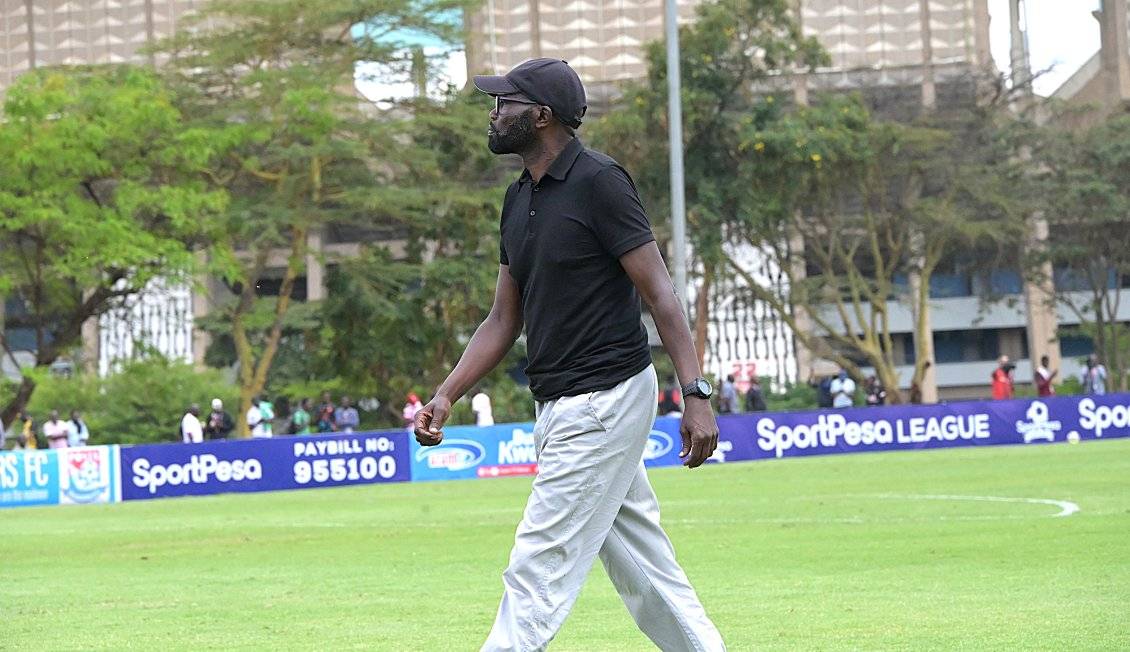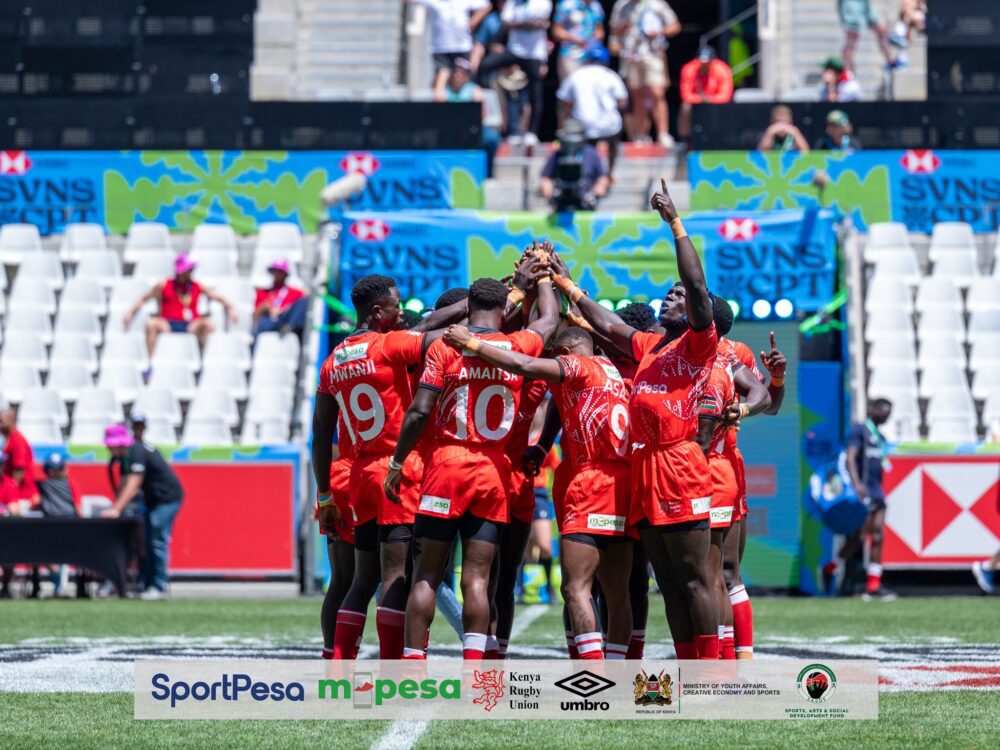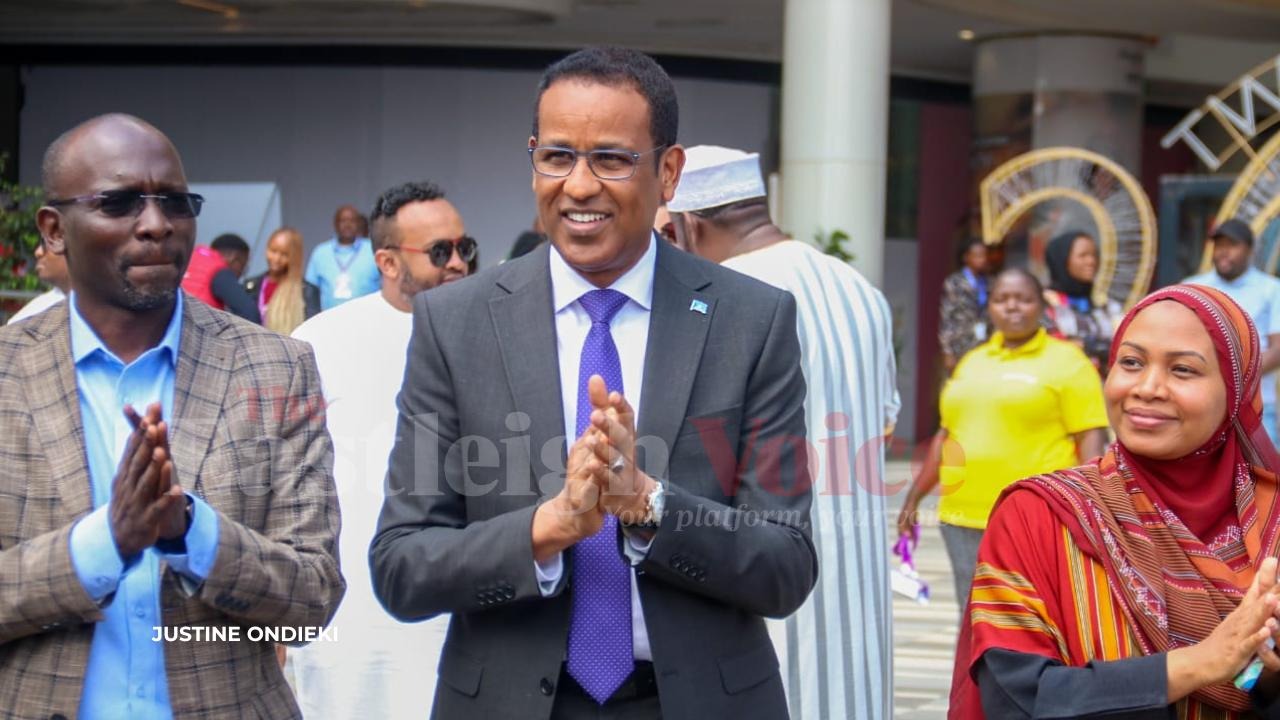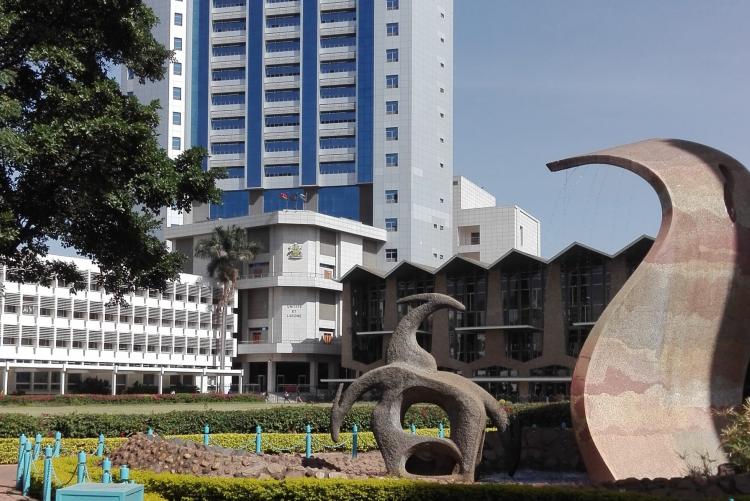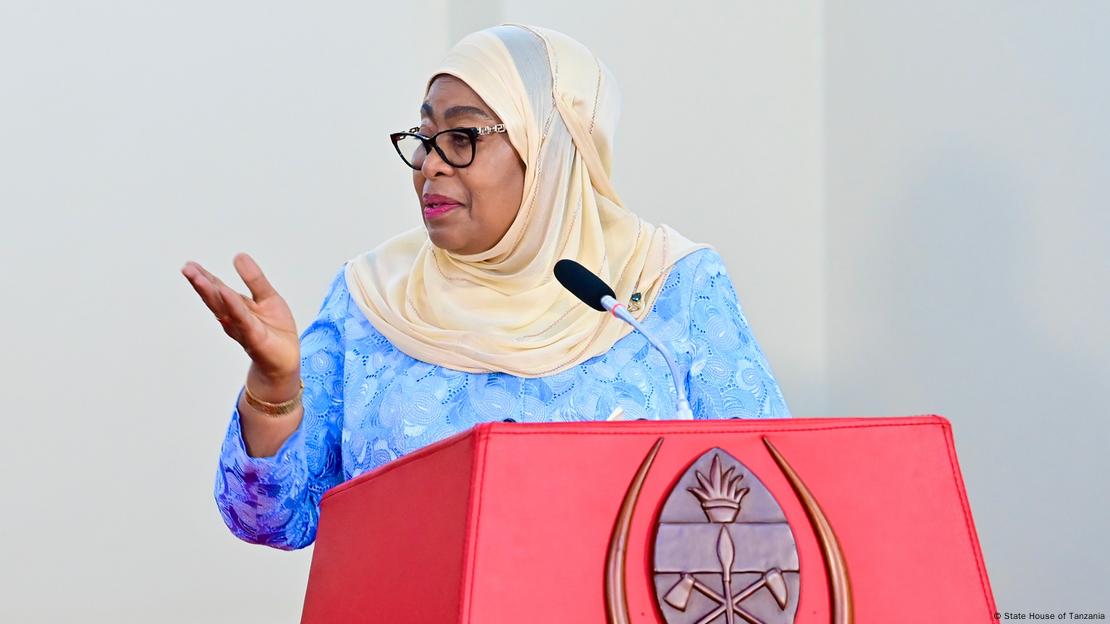A legacy of leadership: Prof Kivutha Kibwana’s journey of service and dedication
Prof Kibwana champions what he calls "productive politics", the kind that focuses on national security, youth empowerment, and genuine service to the people, rather than personal gain.
If you were to meet Kivutha Kibwana for the first time, you would be struck not by the weight of his accomplishments but by his warmth: a teacher’s smile, a reflective pause between answers, and the occasional chuckle when he recalls his "night shifts" as a double minister.
Yet beneath this gentle demeanour lies the story of a man who has walked hallways of power, classrooms of learning, and battlefields of democracy and who, even today, calls himself, simply, “a teacher”.
More To Read
- Activist sues EACC, DPP, KICC boss over alleged illegal arrest and detention
- Kenya Kwanza under fire: Civil groups decry killings, graft and constitutional violations
- IGAD launches new guide to boost media and civil society efforts in combating extremism
- Executive undermining Parliament’s independence, says Kivutha Kibwana
- Coast civil society groups demand inclusive dialogue to calm unrest
- Matiang’i alleges government insiders behind chaos and violent protests in Kenya
Kibwana’s childhood, marked by hardship and hope, shaped his determination. Kibwana was born to a businessman father who later achieved success in Taveta, dividing his early years between two very different worlds.
Starting school in 1960 in a tiny two-classroom setup, young Kibwana faced daunting odds. When advancement meant leaving home to live with relatives, he embraced it without complaint, even enduring hunger in silence so as not to worry his parents.
There were days when food was scarce and moments of profound sadness, like when classmates refused to share food with him because he had none to offer.
"I cried and prayed, asking God to let me study, get a job, and simply have food,” he recalls quietly during an interview with The Eastleigh Voice.
It was a simple, profound dream that fuelled his commitment to education and eventually led him not just to academic success, but to a life of public service.
Today, Professor Kibwana lectures law at Daystar University, a continuation of a teaching career that has spanned decades. Before this, he spent 25 years imparting legal wisdom at the University of Nairobi, helping mould generations of lawyers and thinkers.
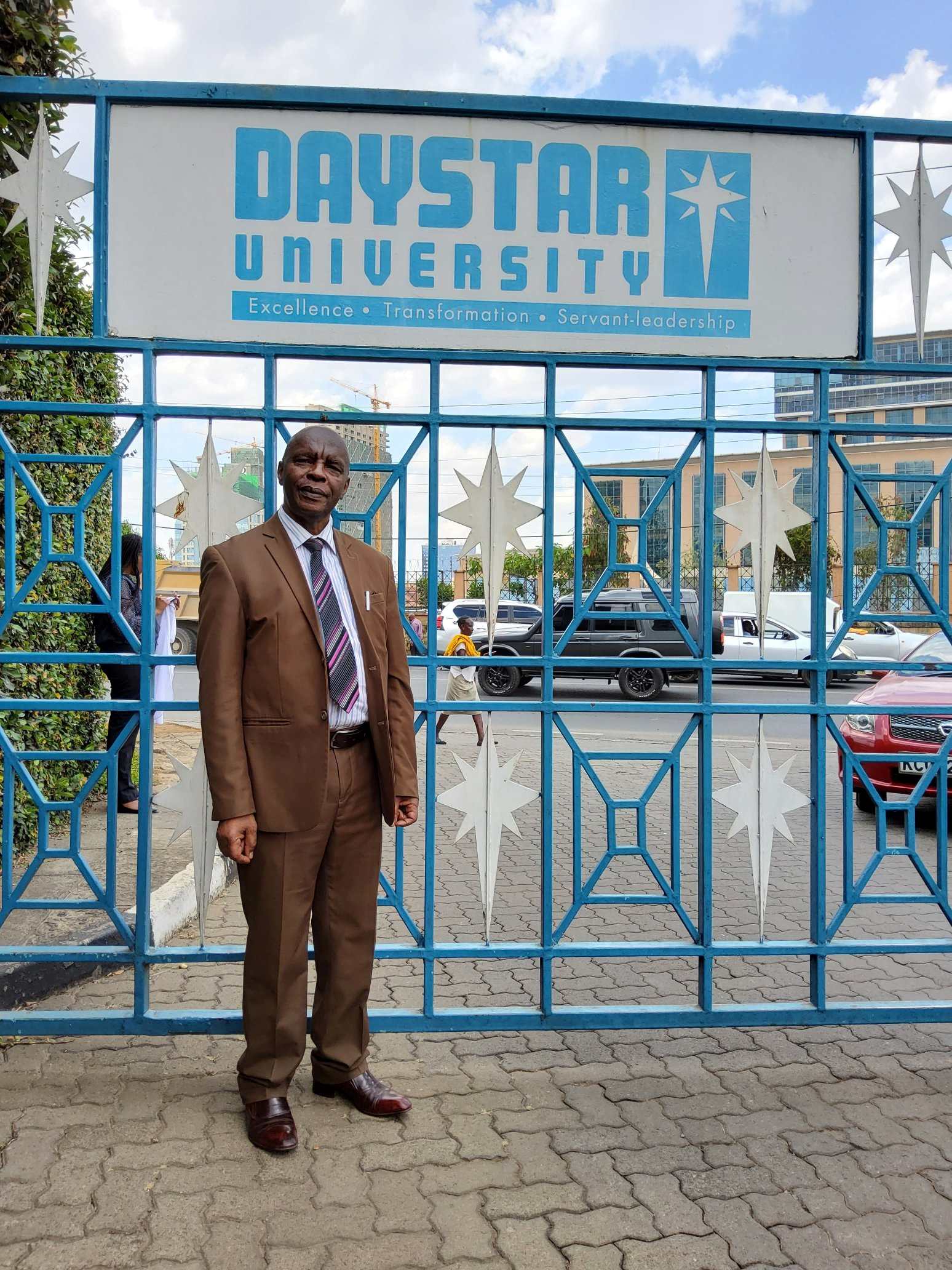 Professor Kivutha Kibwana outside the the Daystar University Nairobi Campus. He now teaches students under the Master of Laws Programme at the university. (Photo: X/Prof Kibwana)
Professor Kivutha Kibwana outside the the Daystar University Nairobi Campus. He now teaches students under the Master of Laws Programme at the university. (Photo: X/Prof Kibwana)
“I never imagined I would become a national leader,” he says, reflecting on a childhood spent in Ndundune village.
Back then, life’s ambitions were simple. For boys, teaching seemed a natural path; for girls, nursing was the expectation.
“Growing up, I thought I would become a teacher, inspired by those who taught me in school,” he recalls. “The expectations for boys were to become teachers, while girls were expected to become nurses.”
His teachers, inspiring and nurturing, planted a seed that blossomed into a lifelong dedication to education and service. Though he would not end up at a teacher’s college as he once thought, his heart remained tethered to the vocation, teaching not just knowledge but values.
Entry into civil society
Kibwana’s entrance into civil society in the 1990s coincided with one of Kenya’s most critical eras. The country had become a one-party state in 1982, and by the early 90s, the push for multi-party democracy was gaining momentum.
“In the 90s, Kenya was still a one-party state, and after the law changed in 1982, I became deeply involved in pro-democracy work. We fought for a new constitution, a multi-party system, and better governance,” he explains. This was the beginning of a remarkable career in civil society.
It was a risky time to be politically active, but Kibwana, guided by a deep sense of justice and civic duty, joined the movement to restore political pluralism. He played an active role in the efforts toward constitutional reform, believing that Kenya needed more than just political freedom; it needed a solid foundation built on rights, justice, and the rule of law.
“The law could be a tool to help people, not just control them,” he recalls, crediting some of this realisation to mentors like Dr Willy Mutunga, the former Chief Justice, who taught him that true legal scholarship must always be people-centred.
His entry into formal politics came in 2002 when he was elected as the Member of Parliament for Makueni. “It was a time when we all believed that change had finally come to Kenya,” he remembers. “The hope was that we would see a better Kenya.”
Kibwana’s political career flourished as he held various ministerial roles, including Assistant Minister in the Office of the President, Assistant Minister in the Office of the Vice President, and later, Minister for Lands and Environment. A particularly challenging but fulfilling moment came when he served as a minister in two ministries at once for 17 months.
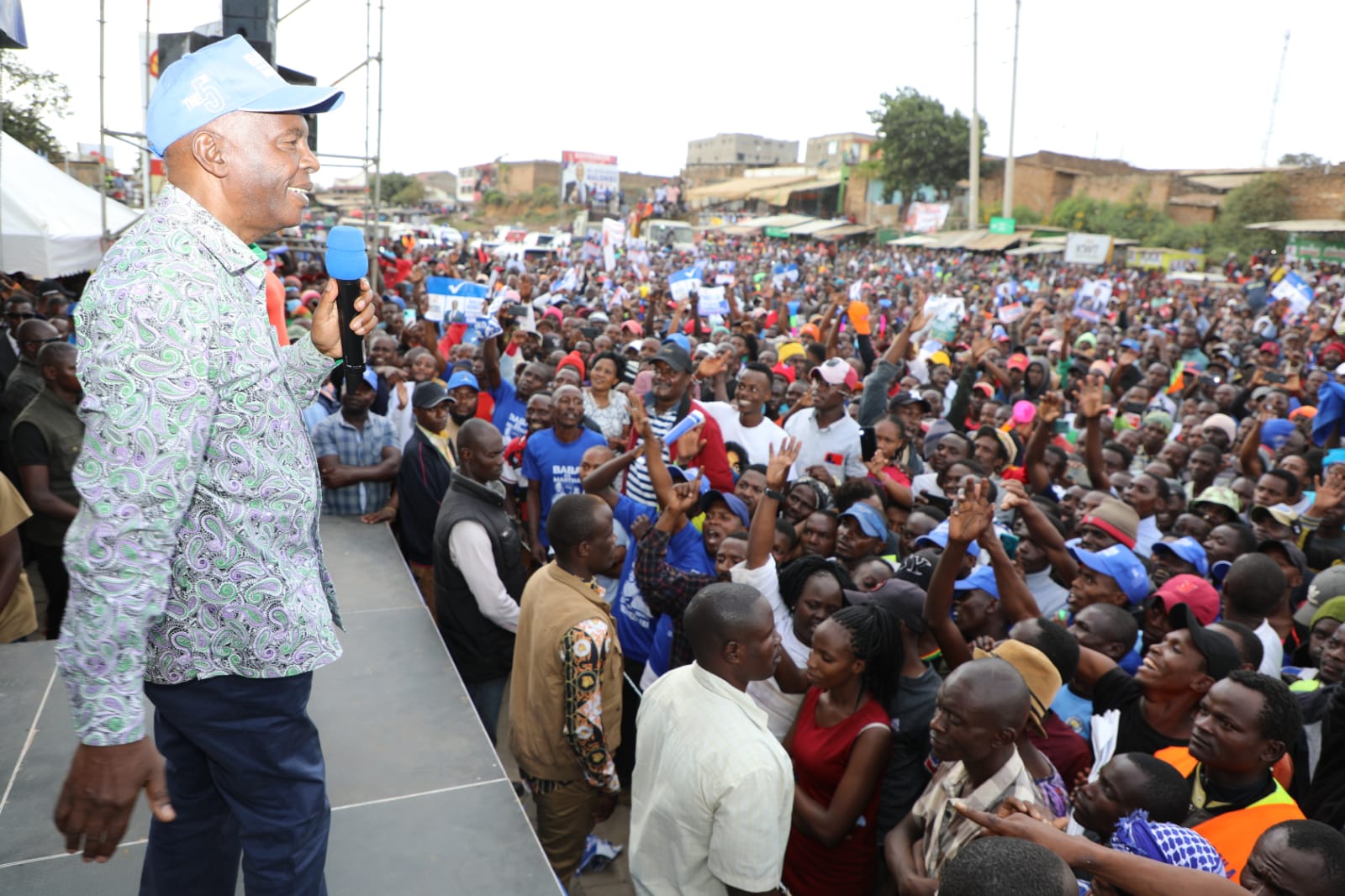 Prof Kivutha Kibwana during a political rally in Kitui County on June 15, 2022. (Photo: X/Prof Kibwana)
Prof Kivutha Kibwana during a political rally in Kitui County on June 15, 2022. (Photo: X/Prof Kibwana)
"I often joke that I had a 'night shift, working in one ministry during the day and the other at night," he says with a warm chuckle.
Later, Kibwana would also serve as an advisor to President Mwai Kibaki, offering counsel on constitutional, parliamentary, and youth affairs. Working closely with President Kibaki, he learnt the subtle art of leadership, an ability to guide through mentorship rather than grandstanding.
“He didn’t speak much, but he listened carefully and offered insights that made you think deeply about your work,” Kibwana remembers.
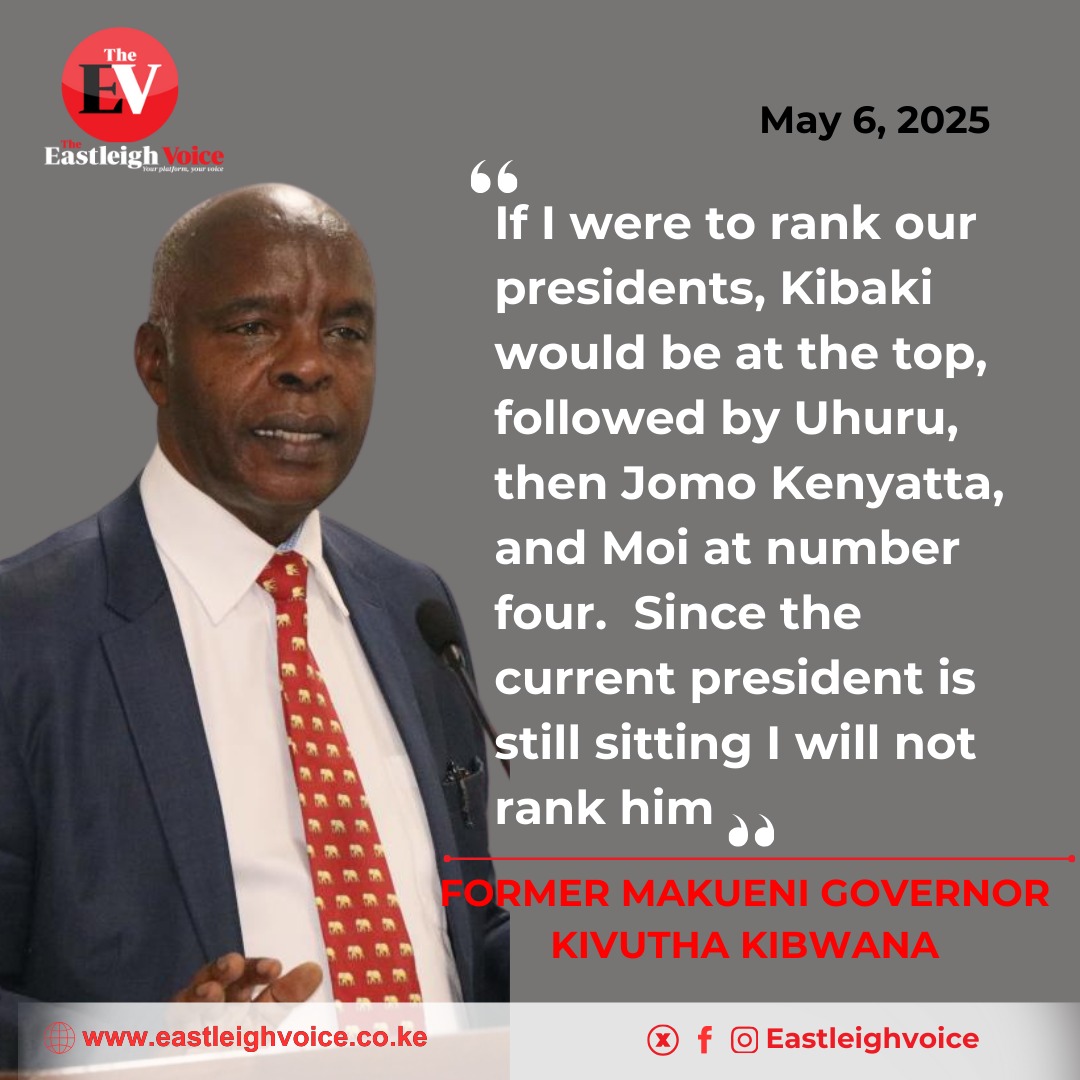
Perhaps Kibwana's most lasting legacy is his work as the Governor of Makueni from 2013 to 2022. Over his ten-year tenure, he introduced innovative governance practices that empowered ordinary citizens.
"We didn't just have one government; we had three. There was the national government, the county government, and the People’s Government, where citizens were directly involved in decision-making,” Kibwana told The Eastleigh Voice.
Citizen-led approach
He introduced a unique budget-making process where citizens at the village level formed committees to decide on local projects. These committees would then elect representatives who ensured transparency and accountability at the county level. “It was about ensuring that the people were intricately involved in decisions that affected them,” Kibwana proudly states.
This citizen-led approach to governance became one of Kibwana's proudest achievements, as it allowed the people to oversee even the construction of a dispensary. “Even when attempts were made to undermine this system, the people stood firm,” he adds.
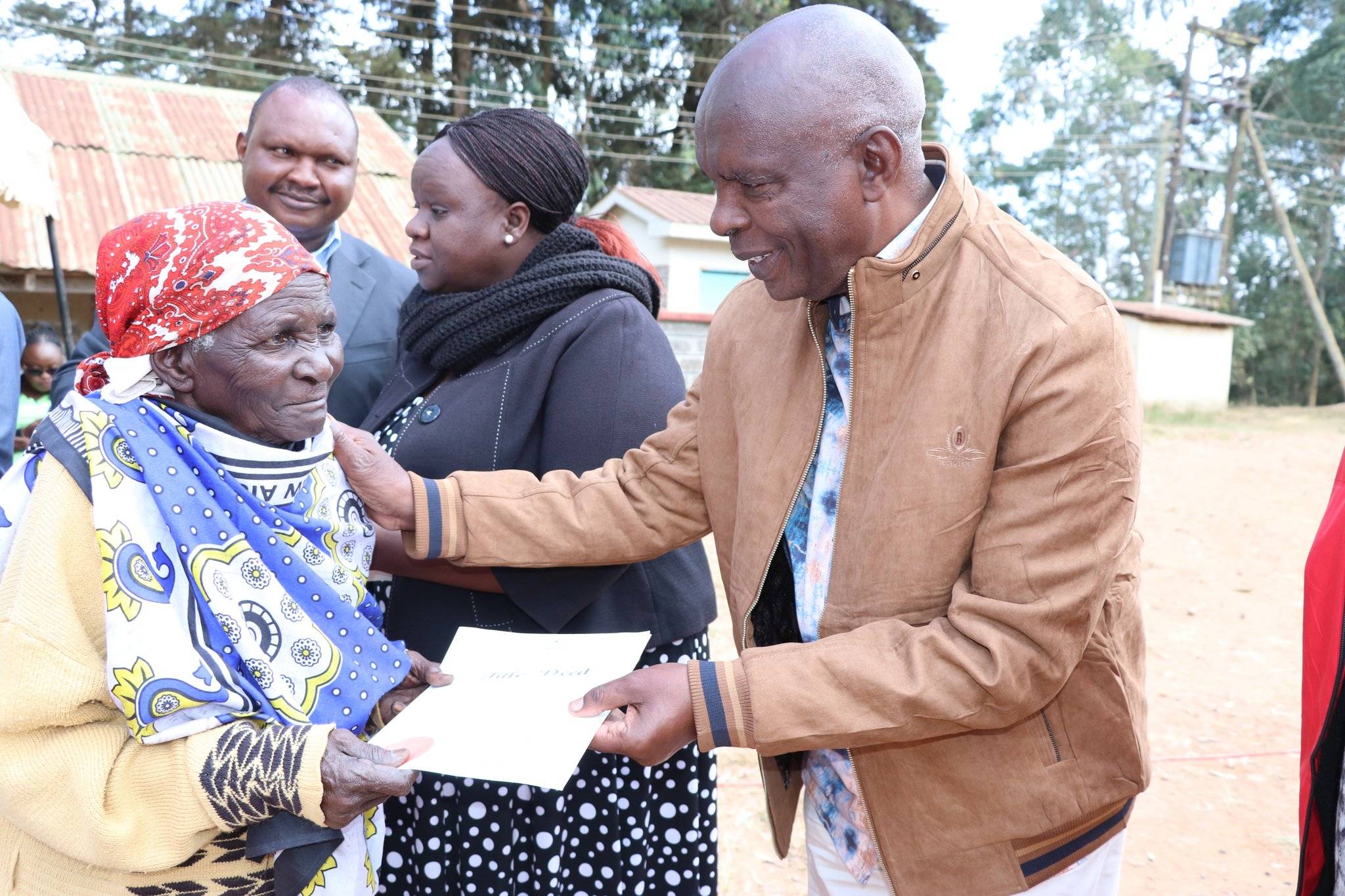 Prof Kivutha Kibwana when he issued 4,700 title deeds for Nduu and Ndiani sub-locations, Kaiti constituency, Makueni County on June 17, 2022. (Photo: X/ Prof Kibwana)
Prof Kivutha Kibwana when he issued 4,700 title deeds for Nduu and Ndiani sub-locations, Kaiti constituency, Makueni County on June 17, 2022. (Photo: X/ Prof Kibwana)
The roots of Kibwana’s leadership style reach deep into his upbringing. His Christian faith, the teachings of his parents, and the storytelling culture of his childhood all instilled in him a moral compass centred on honesty, discipline, and community service.
He recalls a childhood story about a greedy hyena that tried to split itself to get more meat – a vivid lesson on the perils of selfishness. Books, too, played a crucial role, teaching him to prioritise service to others over personal gain.
But Kibwana worries about the direction modern education has taken. "Today’s schools focus too much on grades and too little on values. Without teaching honesty, discipline, and love for others, we raise individuals but fail to build a society,” he says.
He is critical of what he sees as the growing gap between academic achievements and the ethical teachings that should guide young minds. “In Kenya and globally, we need to focus on teaching our children the importance of integrity, compassion, and working together for the common good,” Kibwana urges.
Ubuntu, the African philosophy that "I am because we are", is, in his view, more relevant than ever. Kenya, and indeed the world, needs to re-embrace this spirit if it hopes to achieve sustainable development and peace.
Kibwana's political career was not without its challenges. A political conflict with members of the county assembly led to one of the darkest moments, an attempt on his life.
“It was a deeply traumatic time. We were shot at during a meeting, and my own security detail was injured. It was hard to comprehend that people from my own county would resort to such violence,” he reflects.
Despite these challenges, Kibwana remains resolute. "I don't give up. If I’m protecting the resources of the people, I’m on the right path," he affirms. His resolve to continue fighting for Kenya’s future mirrors his unwavering commitment to pro-democracy movements in the 90s, despite the dangers he faced.
Kenyan politics
According to Kibwana, politics is a complex, unpredictable dance, often harsh, but ultimately essential. “Sometimes when you think people are your friends, they may not be,” he muses.
In Kenyan and broadly African politics, betrayal can often feel like part of the fabric. Yet despite its treacheries, Kibwana believes in the power of politics to shape nations positively.
 Prof Kivutha Kibwana during an interview with The Eastleigh Voice Editorial Lead Amina Wako. (Photo: Ahmed Shafat)
Prof Kivutha Kibwana during an interview with The Eastleigh Voice Editorial Lead Amina Wako. (Photo: Ahmed Shafat)
He champions what he calls "productive politics", the kind that focuses on national security, youth empowerment, and genuine service to the people, rather than personal gain. His memories turn fondly to the era of President Mwai Kibaki, whose leadership style he admires for its intentionality and nation-building spirit.
“If I were to rank our presidents,” he says thoughtfully, “Kibaki would be at the top, followed by Uhuru, then Jomo Kenyatta, and Moi at number four. It will be unfair to rank the current president since he is still in office.”
Were he able to speak to his younger self or today’s Gen Z, Kibwana’s advice would be clear and firm: focus, prepare, and build meaningful relationships. Reflecting on his university days at 21, he encourages young people to invest seriously in their futures, academically, financially, and personally.
“If I were to advise my younger self, I’d also be speaking to Gen Z because it’s a similar age group. I would encourage both myself and Gen Z to invest in preparing for the future because the future is already here,” Kibwana added.
Recalling his early career writing for newspapers, Kibwana admitted he overlooked the importance of saving money.
“I didn’t know the importance of saving that money,” he confessed. “I’d advise my younger self to save some of the money I earned to start securing my financial future early on, not waiting until formal work began.”
Kibwana’s downtime reveals a man of quiet hobbies and strong spiritual roots. An avid reader and a committed Christian, he embraces his faith as a source of strength while deeply respecting the diverse ways others worship. He finds joy in good conversation, mentoring young people, and living by the values that have long anchored his public and private life.
"Honesty is non-negotiable," he emphasises. For him, the slippery slope begins the moment one compromises integrity, even slightly. It is a standard he holds himself to, especially in handling public funds.
Family, too, serves as his bedrock. With a supportive spouse and four grown children, transparency at home was always paramount. "If I had money, I had to explain where it came from," he says simply.
Yet, he shares with a laugh, even the most principled parent has their tricks: he once invented a fictitious “black book” to keep his children in line while their mother studied abroad. "It wasn't the whole truth," he admits, "but it worked."
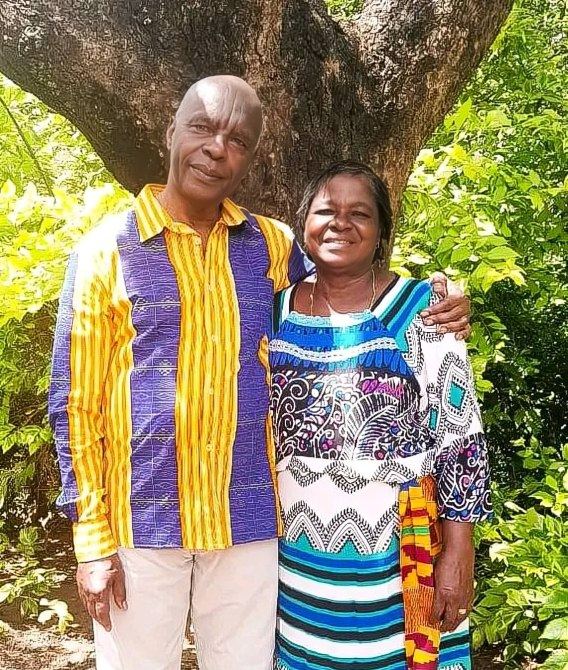 Prof Kivutha Kibwana with his wife Nazi Kibwana. (Photo: Handout)
Prof Kivutha Kibwana with his wife Nazi Kibwana. (Photo: Handout)
While none of his children have pursued formal politics, they often advised him during his public life. His mother, now 90, remains impressively engaged, offering keen commentary on national affairs. Her support during initiatives like affordable health care, where families accessed medicine for just 500 shillings, was a source of pride.
Today, Kibwana finds joy in his grandchildren, recently learning the art of baking from one of them – a sweet reminder that life’s later chapters can be just as fulfilling as the earlier ones.
Yet, even in these moments of personal happiness, Kibwana’s mind remains on the nation’s future. His concern is palpable: “We must ensure that our country doesn’t go down the drain,” he warns.
The devastation seen in Sudan and Libya weighs heavily on his heart. “When nations collapse, it’s women and children who suffer the most. Those with money can leave. The others remain behind.
His call is simple but urgent: patriotism over partisanship, accountability over empty promises. Leaders must serve with respect and integrity, not out of ambition but out of duty.
Looking back on his life, Kibwana reflects on the lessons he's learnt and the things he might have done differently. “I was sometimes distracted in my youth, but I’ve learnt to focus and dedicate myself to my work,” he admits.
His story is one of continuous growth, grounded in the values of hard work, honesty, and service. “At the end of the day, we’re here to serve the people. If you lose sight of that, you’re on the wrong path,” Kibwana concludes.
During the COVID-19 pandemic, his granddaughter, just three years old, once found him lying on her grandmother’s bed and, not recognising him, asked, “Who is this stranger?”
“That moment hit me,” Kibwana says, laughing. “It reminded me how much time I had spent away from home—and the importance of being present with family.”
In his view, mentorship is not a one-way street. Leaders must listen and learn from the youth, who often bring fresh perspectives that challenge old assumptions.
Top Stories Today
